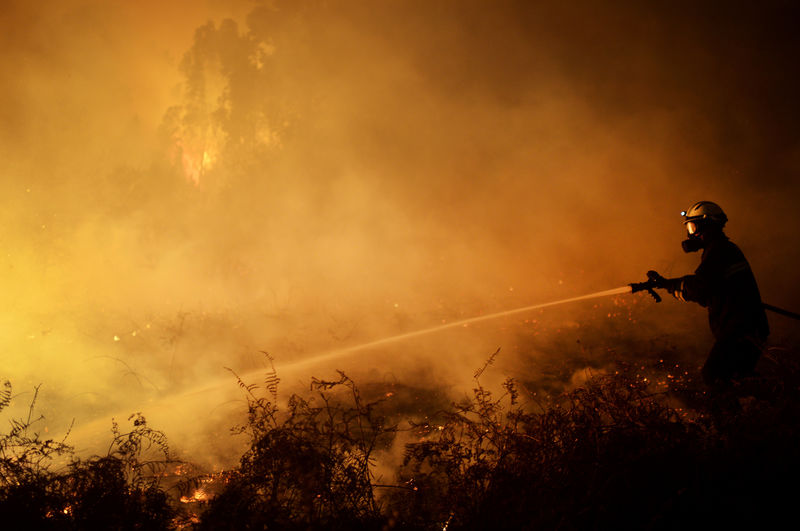By Nia Williams and Eric M. Johnson
CALGARY, Alberta, May 19 (Reuters) - Firefighters battling a
wildfire that has threatened oil sands facilities north of Fort
McMurray, Alberta looked to cooler weather and the promise of
rain on Thursday, as the city's evacuated residents were buoyed
by long-awaited re-entry plans.
The fire, spread over 422,000 hectares (1.04 million acres),
surged north of Fort McMurray this week, forcing the evacuation
of 8,000 oil sand workers and prolonging a shutdown that has cut
Canadian oil output by a million barrels a day.
"We expect lighter winds and continued humidity to rise as
we start to see some potential for rain, or at least cooler
weather, over the next couple of days, which will be a real
bonus," wildfire manager Chad Morrison said on Wednesday.
Evacuees who fled Fort McMurray two weeks ago as the massive
blaze breached the city may be allowed to return home as soon as
June 1, officials have said, if air quality improves and other
safety conditions are met.
Oil sands operations directly north of the city stayed
shuttered, as firefighters hold back a blaze that threatened the
mining and upgrading projects of Suncor Energy SU.TO and
Syncrude Canada.
The fire destroyed a 665-room lodge for oil sands workers on
Tuesday, before blazing eastward toward other camps, but
officials said they were not aware of further industry damage.
"In terms of the industrial camps and facilities out there,
we have been able to hold the line," Morrison added.
The lengthy shutdown in energy output has dealt a new
setback to producers, suggesting production may be suspended for
longer than companies and analysts had originally anticipated.
But there were glimmers of hope. Premier Rachel Notley said
on Wednesday that some of the region's 90,000 evacuees would be
able to return home early next month, if it was safe to do so.
That excited residents, though they were nervous about what
they might find.
"It's exciting news, but you are also scared to see what you
get when you get back," said Fort McMurray resident Ria
Dickason, adding that she was concerned about smoky air.
The air quality health index, which usually stands between 1
and 10, hit 51 on Wednesday morning, before improving to 11.
"We won't go back if it's anything close to the levels it's
at now. My daughter has asthma, so we are more alert to it,"
Dickason added.
(Writing by Julie Gordon in Vancouver; Editing by Clarence
Fernandez)
